Homeowners rely on their air conditioners most especially during summer to stave off the heatwaves. But sometimes, you'll notice that your air conditioner might not work as well on extremely hot days. You might be wondering if it can get too hot for your air conditioner to work, so we've done the research for you to know if it can.
Once the temperature outside reaches 100 degrees Fahrenheit, your air conditioner will need to work harder to make your room colder. This can lead to it possibly shortening its lifespan. So yes, it can be too hot for the air conditioner to work as intended.
It's important to help out your air conditioner so it can work properly for you when you need it the most. You'll need to remember to not overutilize your air conditioner to the point of it breaking down. Read on as we go through the effects of hot weather on air conditioners and more.
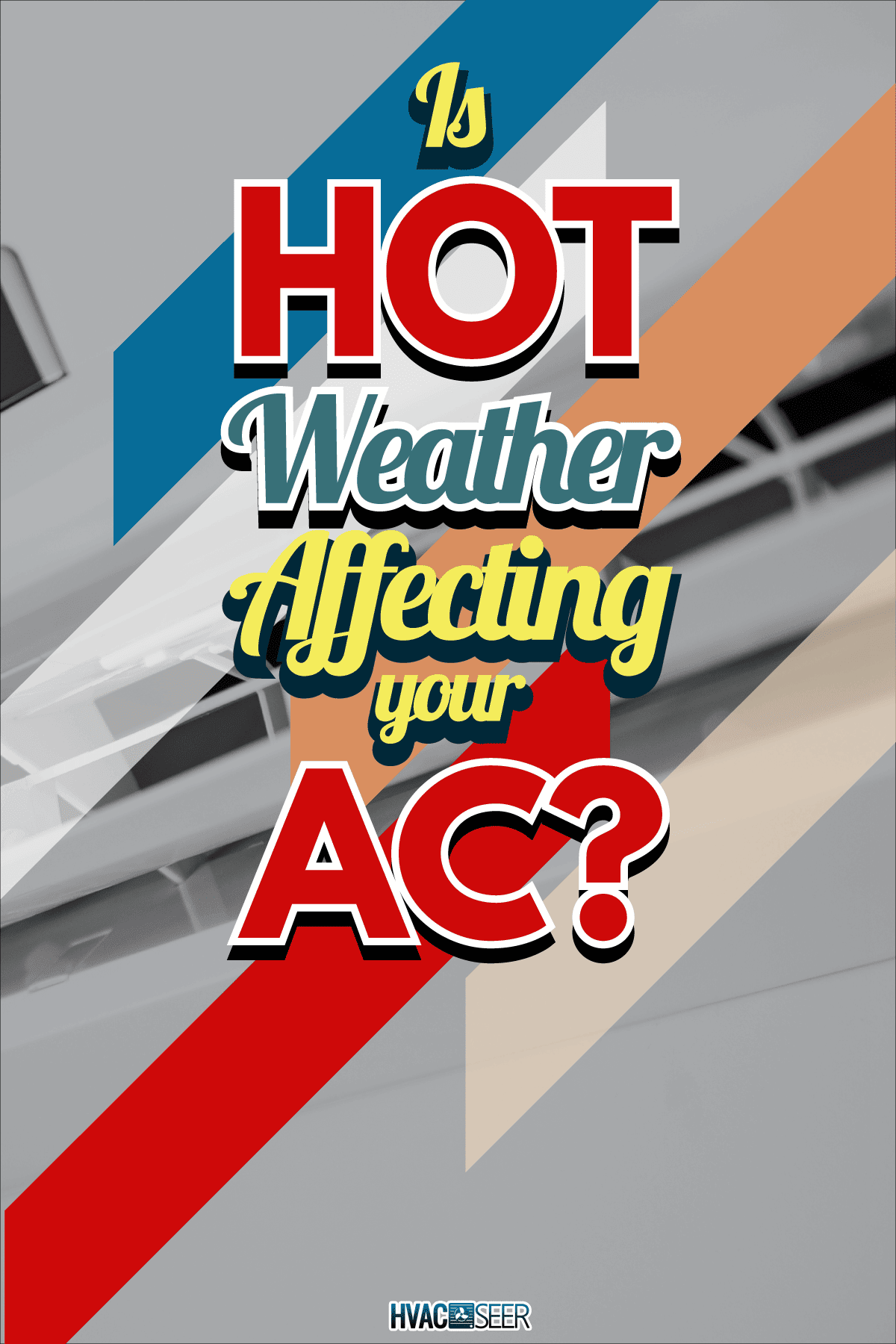
The Effect Of Hot Temperatures On Air Conditioners
When the weather gets downright unbearable due to hot temperatures, one of the many things people do to cool off is to find a room that has air conditioning. People especially rely on air conditioners during hot days to find refuge from the heat. However, turning the air conditioner while the temperature outside is up to 100 degrees Fahrenheit means that it must work harder to bring the room to a cooler temperature.
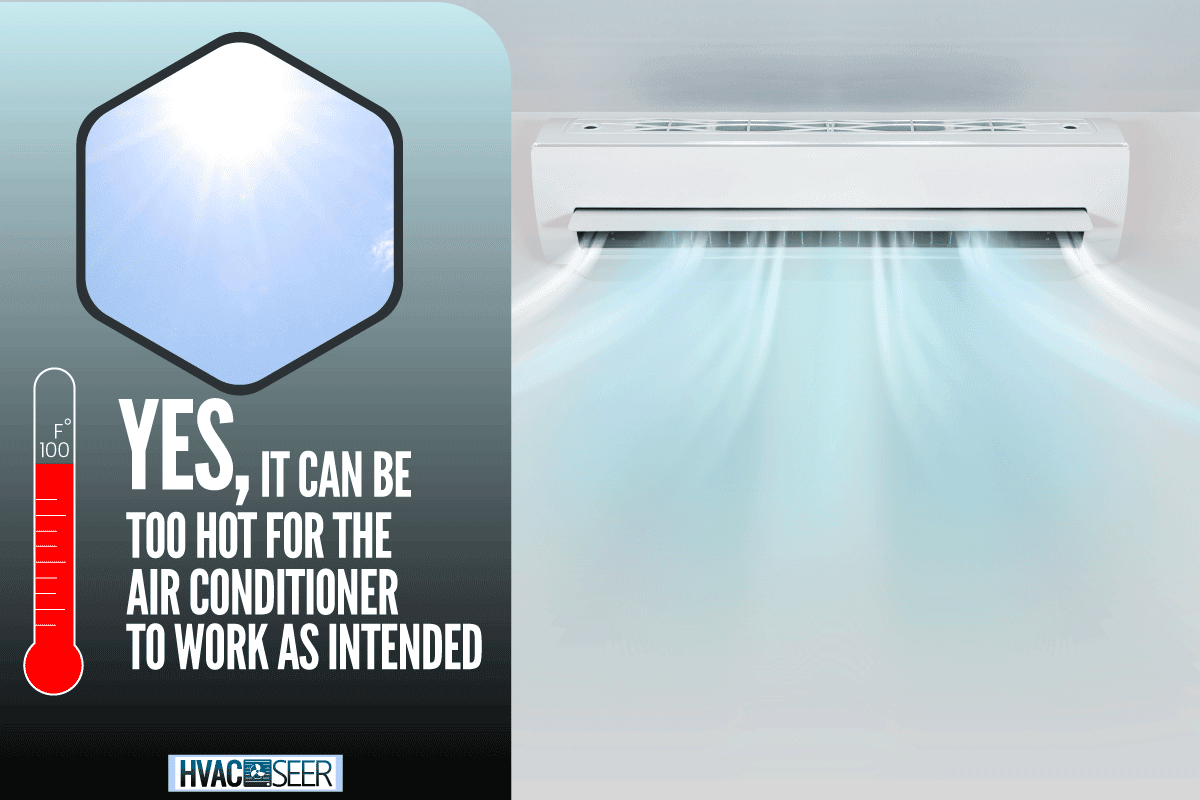
Normally, people would turn up the air conditioner on high and lower the temperature to attempt to make the room cooler. What they don't know is that not only does it not make the room cooler in a faster way, but it also strains the appliance unnecessarily. Here are just some of the things that can happen to your air conditioner:
- Air filters will get clogged at a faster rate
- There's a higher chance that debris can enter the exterior unit of your air conditioner
- The amount of energy used will hike up your electricity bills
- Overconsumption of energy or overuse of the air conditioner can eventually lead to malfunction

Tips On Using Your Air Conditioner During A Hot Season
Now that you know it can be difficult for an air conditioner to work at its best during hot weather, you may be thinking of ways how to still utilize it without straining it. While it is tempting to simply blast the air conditioner, you may want to step away from that route and do these simple tips instead.
Use The Right Air Conditioner Size
Each air conditioner has a cooling capacity that caters to a specific room size. This is why it is important to get the right air conditioner for your room. If you have a big room with an air conditioner that doesn't have the right BTUs for it, it will have a harder time cooling the room. You also shouldn't be putting in an air conditioner that provides more BTUs in a small area as it will make the room more humid and be unnecessarily costly on your part.
To know what cooling capacity you should have for your room, keep your room's measurements in mind when you go shopping for an air conditioner. You can check out several of our articles that explore what room sizes are appropriate for a 5,000 BTU air conditioner, a 6,000 BTU air conditioner, and an 8,000 BTU air conditioner.
Here's an Amazon Basics air conditioner unit with 5,000 BTUs available on Amazon.
Keep Your Windows And Doors Closed
The air conditioner cools down the temperature of the room by extracting the hot air inside it. From there, it blows cool air in while expelling the hot air outside. However, if your room has opened doors or windows, the hot air will simply go back inside the room. This means that your air conditioner will consistently try to cool down air that's already been blown out of the room, making it work harder than it should.
To avoid this from happening, make sure that your windows and doors are closed at all times. That doesn't mean you can't go out of your room, but if you need to open a door or window, do it as rarely as possible so you can help maintain the cool temperature of your room.
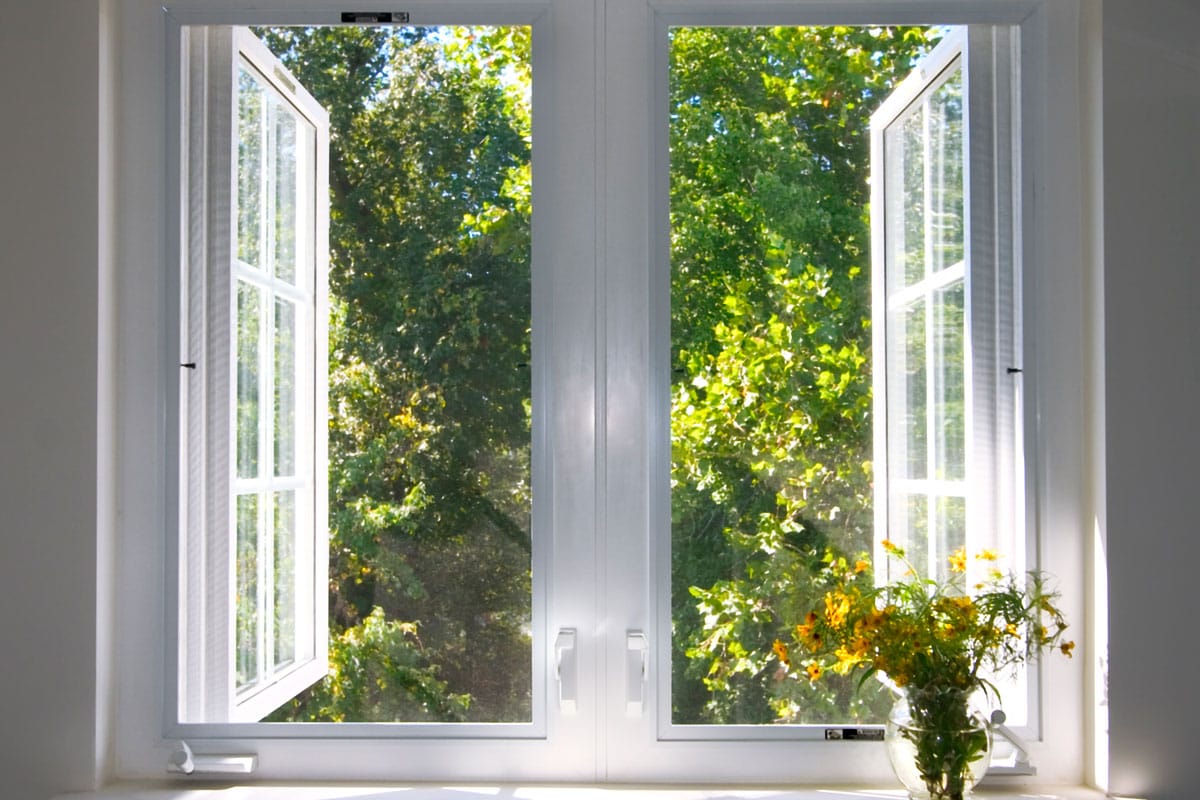
Know When To Keep Your Air Conditioner On Or Off
Normally, people have their air conditioner turned on while they're in the vicinity, but when they leave their home, some may opt to leave it on until they return. They might be thinking that leaving the air conditioner on would maintain the temperature of the room and will not expend extra energy getting it back to the temperature they want compared to when they turn it off.
However, you'll need to think twice about that. Not only is the air conditioner working all throughout the day, but it is also going to need a continuous flow of energy. This means your bills will be higher by the end of the month if you let your air conditioner run while you're gone. Instead, consider turning off your air conditioner when you're going out for a long while and turning it back on when you come back.
Set The Temperature Correctly
Turning off your air conditioner when you're going out for a long while is the recommended practice. However, that may mean opening your home at the end of the day with hot air to greet you instead. Instinctively, you might want to turn your aircon on high and set your temperature to the lowest possible degree it can get, and hope it would cool the room as soon as possible.
Doing this won't hasten the process of cooling off your home. Setting the air conditioner's temperature isn't for how cold the air will be blown into the room but for the temperature you want your room to be in. Your air conditioner will produce the same amount of air and temperature until such a time that your room will reach the temperature you set.
If you're setting the temperature at the lowest possible temperature, your air conditioner will work harder than it needs to. You'll also feel too cold and not comfortable because the temperature setting may not be to your liking after all. Instead of doing all that, just set the temperature normally and wait for the air conditioner to do its job.
Utilize Your Electric Fan
Having an electric fan work while your air conditioner is turned on may sound like a waste since you're using two appliances. Since cold air is heavier and denser, it means that it also spreads slower than hot air. If your air conditioner is blowing only in a certain direction, it will take some time before the cool air disperses around the rest of the room.
This is where your fan comes in as it can help distribute cool air around the room where your air conditioner can't reach directly. By turning on your electric fan, you are actually helping your air conditioner make your room cooler at a faster rate and avoid it exerting too much effort for long periods of time.
Conduct Regular Maintenance
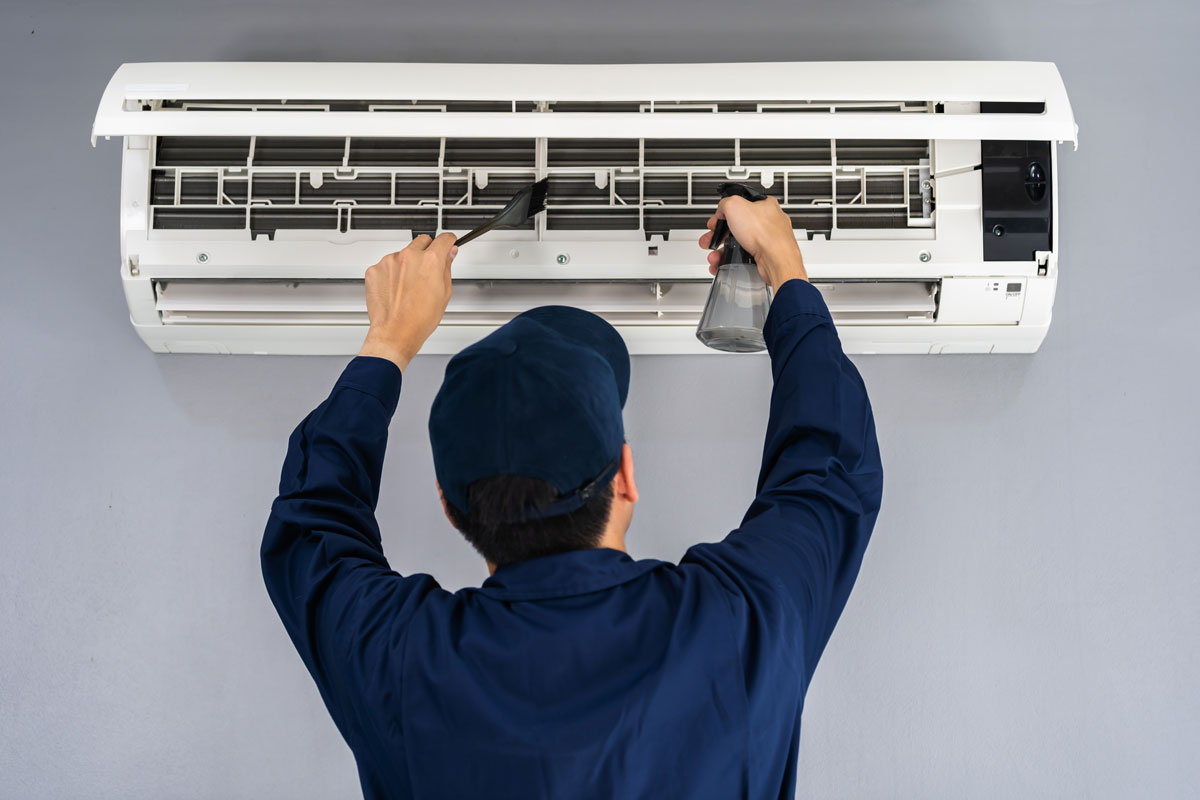
People are dependent on their air conditioners to cool down during a hot day, but it's also often neglected. One of the reasons why your air conditioner may be having a hard time during hot days is because you skip having maintenance done on it. This includes cleaning out its filters every month.
If you don't clean the filters, they will eventually be clogged with dirt and different types of debris. This may cause strain on your air conditioner and can even hike up your electricity bill. If you use a central air conditioner at home, we have an article on how to clean your central air conditioner's filters. You can also call a professional to do maintenance on it every year to make sure that your air conditioner stays in shape.
In Conclusion
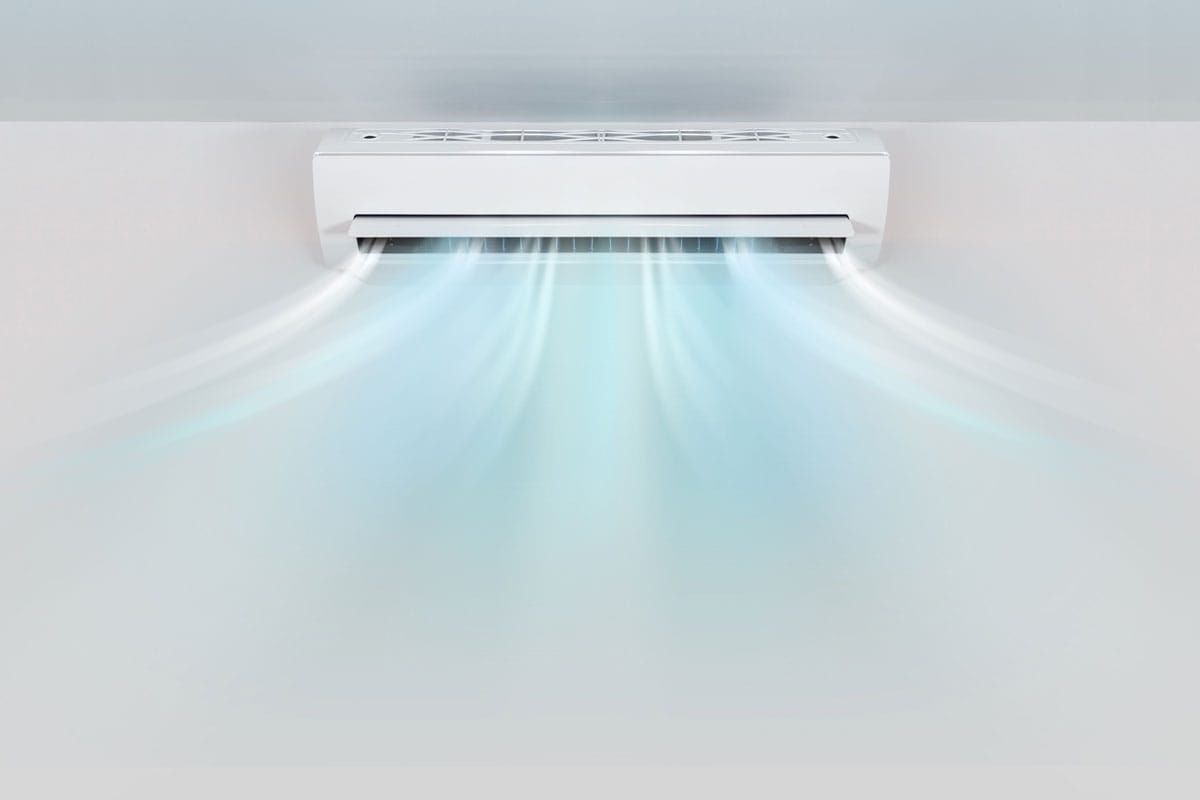
Temperatures of 100 degrees Fahrenheit or more can affect the performance of your air conditioner. Not only does it force your unit to work harder, but it can also cause it to malfunction later on. This is why it's important to not overburden your air conditioner and maintain its condition.
Before you go, here are other articles you might want to browse through:

